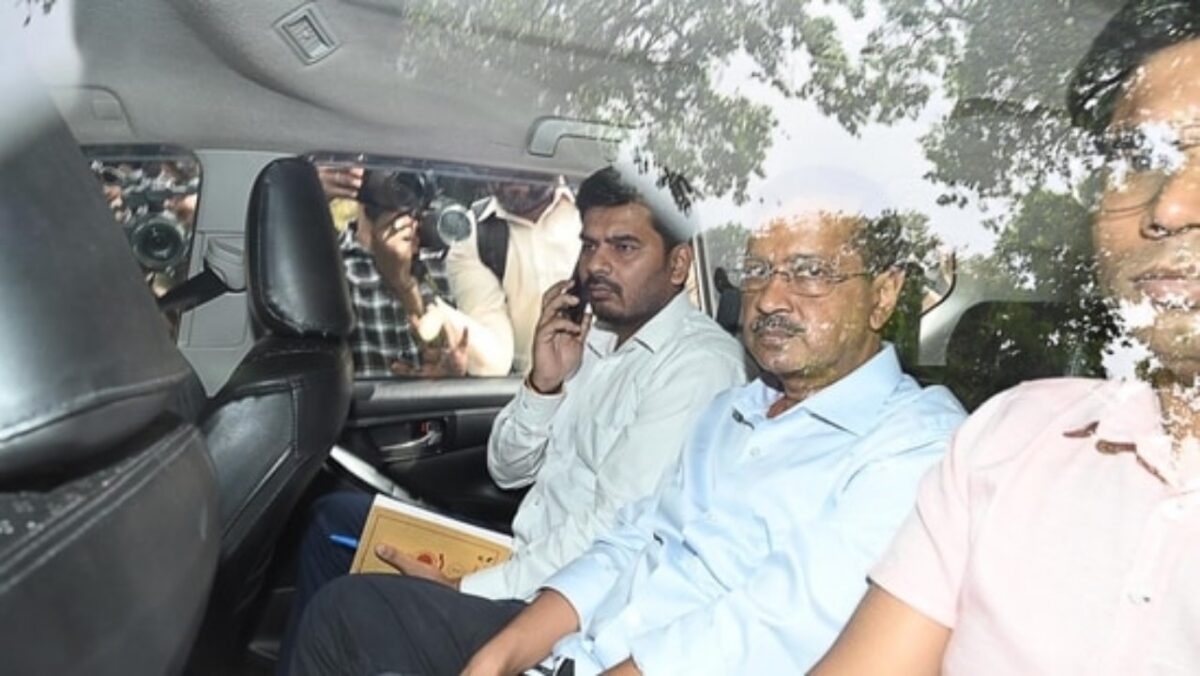In a startling turn of events, Arvind Kejriwal, the Chief Minister of Delhi, finds himself at the center of a controversy surrounding the liquor policy case. The decision to shift him to Tihar Jail has sent shockwaves through the political landscape, igniting debates over governance, policy, and political accountability.
The crux of the matter lies in Delhi’s liquor policy scam. Delhi CM was arrested on 21st March for the liquor policy scam. Arvind Kejriwal’s ED Custody ends today (on 1st April). Reports say he will be spending the next 2 weeks in the Tihar Jail. The Court has given the Permission to him to meet his wife Sunita Kejriwal and 2 Ministers Atishi and Saurabh Bhardwaj before he is taken to the Tihar Jail.
Arvind Kejriwal was presented in Rose Avenue Court in Delhi, where the ED stated that he has been ‘Uncooperative’.
Arvind Kejriwal did not disclose his personal passwords for the investigation to occur. They also said that Kejriwal gave false evidence against his AAP members but when the AAP party members were confronted about this, they denied the allegations. When Kejriwal was told that AAP members are denying the allegations then he called them ‘confused’. The ED has also stated that bribe money was being used for the Election Campaign.
Lawyer of Arvind Kejriwal has demanded some tablets and medicines for the CM because he is unwell. Another request has been made for a copy of Bhagavad Gita, Ramayan and a book by Neerja Chowdhury called How Prime Ministers Decide to be given to the Delhi CM Arvind Kejriwal.
The ED stated that Kejriwal was one of the main participants in the liquor scam. According to the agency, Arvind Kejriwal acquired a large amount of several crores as bribes to officials from the ‘South Group’ for developing the Delhi excise policy and using that money in the Goa and Punjab elections. Arvind Kejriwal’s wife asks that if the investigation was over then why was he sent to jail? She also stated that The people of the country will answer to the Dictatorship.
After the arrest of Delhi CM took place and he was being shifted to Tihar jail, the police continued to control the situation outside jail because AAP leaders and supporters were protesting against Kejriwal’s arrest. In this Protest Police detained Jarnail Singh,AAP MLA.
The court’s action to transfer Kejriwal to Tihar Jail underscores the gravity of the situation and serves as a stern reminder of the importance of upholding the rule of law and respecting judicial authority. While some see it as a necessary step to ensure accountability and adherence to legal norms, others view it as an authoritarian crackdown on dissent and executive overreach.
The ramifications of Kejriwal’s confinement extend beyond the confines of Delhi’s political arena. It raises broader questions about the balance of power between the executive, legislative, and judicial branches of government, as well as the limits of political activism and civil disobedience in a democratic society.
Furthermore, Kejriwal’s predicament highlights the challenges of governance in a complex and diverse society like India. Balancing competing interests, navigating bureaucratic hurdles, and addressing societal concerns require not only vision and determination but also pragmatism and consensus-building.
The controversy surrounding Kejriwal’s liquor policy also underscores the need for effective communication and transparency in policy making.
